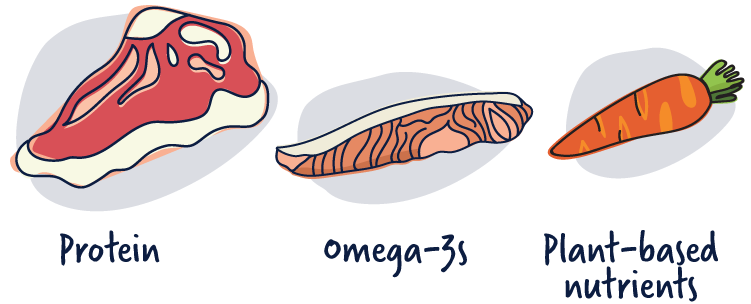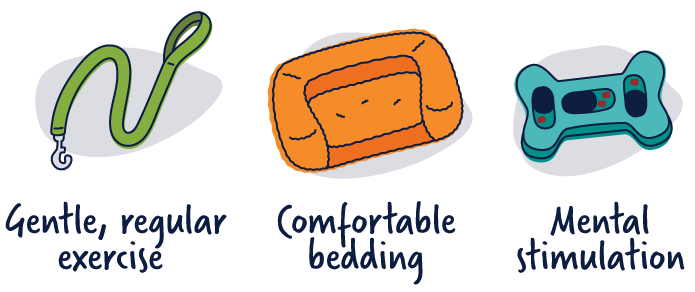Not all dogs are considered seniors at the same age, it really depends on the individual dog. Generally, giant breed dogs age faster than smaller breed dogs. A Great Dane is considered a senior by roughly 5-6 years old whereas a little Chihuahua would probably not be considered a senior until 10-11 years.
As dogs age, their needs change; common senior issues can include stiff joints, heart problems, cloudy eyes, slower digestion, and a bit of mental fog. You might notice your dog not hearing or seeing as well as they used to.
This is why regular vet check-ups become more important as they age. Catching things early can help your dog stay happy, healthy, and comfortable in their golden years.
How Nutrition Helps Older Dogs
One of the best ways to support your senior dog is with proper nutrition. A fresh, raw diet made from high-quality animal protein gives their body what it needs to stay strong and healthy.

Here’s what is important in senior dog food:
- Protein keeps their muscles strong and supports healing.
- Omega-3s (like the ones in salmon) help reduce inflammation – great for joints.
- Plant-based nutrients (like those found in veggies and berries) can help lower the risk of diseases like cancer and support brain health.
As dogs age, they often slow down – you’ll see less ‘zoomies’ and more naps. This means they don’t burn as many calories, so feeding a diet that’s rich in nutrients but a little lower in calories can help keep them at a healthy weight.
Switching a Senior Dog to Raw Food
If you’re thinking about introducing your older dog to raw food, that’s great! Just take it slow. Seniors can be more sensitive to change, especially if they’ve been eating kibble most of their life.
Start by gradually mixing in raw food with their current diet over a couple of weeks. This gives their body time to adjust and helps prevent any tummy troubles.
Other Ways to Support Your Senior Dog
Diet is a big piece of the puzzle, but there are other things you can do to help your dog through their golden years.

- Gentle, regular exercise – walks, light play, or swimming can keep their joints moving.
- Comfortable bedding – soft, supportive places to rest are essential.
- Mental stimulation – puzzle toys or short training sessions help keep their mind sharp.
Caring for a senior dog is all about helping them feel good, move comfortably, and enjoy their days. With the right food and a bit of extra TLC, your old mate can keep wagging their tail for years to come.
Want to switch your senior dog to a better diet? Check out Leading Raw Senior.
